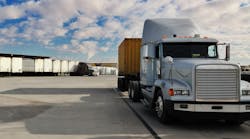Paying the bills
If you read this column religiously—and I know there are some of you out there that tell me you do—you know that at times, I may slide a baseball reference or two in here since my son is an avid baseball player and fan. And knowing that, you can probably conclude that I spend many weekends in my car traveling to different locations in the Delmarva area so that my son can play in tournaments.
Youth baseball can be quite addicting for an entire family, which means that the traveling aspect is not too bad with the exception of the roads. I, and just about every driver out there, have come to the conclusion that traveling on smoothly paved roads is certainly a luxury that the federal government has deemed unaffordable and rarely available.
The 60th anniversary of our country’s Interstate system was recently celebrated with little fanfare. The growing epidemic of ill-defined roadways and structurally deficient bridges has seemed to incessantly increase over time, causing the growing popularity of pothole hotlines and inevitable property damage due to our failing infrastructure.
Touted as one of the few issues that the presidential candidates in our recent election seem to have agreed upon, our nation’s infrastructure investment has dropped to 28th in the world. In other words, with the election behind us, surely we can now agree to the fact that we, as a nation, need to fix our infrastructure, right? Not so fast, since we cannot even get behind a mechanism to pay for it.
Mired behind the fact that our Congressional leadership believes tax increase is a four-letter word, our states have taken the ball and run with it. Recognizing that they are not getting the financial support from the federal government, state legislatures—18 in all, and if you count Washington, DC, 19 state-type entities—have made adjustments to their state gas taxes in order to fund desperately needed projects so that freight, passengers and other modes of transportation can safely travel.
Roadwork and bridge repair are the low-hanging fruit of this issue. Think about the truck technology boom that seems to have occurred overnight. Driverless trucks, platooning vehicles, and V2V communications are all new concepts that bring our industry into the next generation of delivering freight; however, we must repair our infrastructure in order for this technology to take hold. Without well-defined roadways, some of this technology may not even work.
That being said, the trucking industry has not been shy about trying to do its fair share. We have constantly exclaimed that we are willing to support a fuel tax increase and even index that to an appropriate annual cap, such as the CPI, to assure that the Highway Trust Fund can maintain its self-sustainability for years to come. But our representatives are reluctant to even enter into this conversation for fear of election repercussions.
The election is over, and a new Congress will take shape in January. Meaningful conversations must begin so that our industry can concentrate on delivering freight rather than being detained on congested and dilapidated highways.
The dialog cannot have an ending; it must be continual so that we as a nation can assure that not only are we addressing the needs of today’s highway traveler but the needs of a nation 50 to 100 years later. Without examining the needs of future infrastructure obligations, we are certain to be having this conversation time and again, traveling down an even bumpier highway than we are now.



